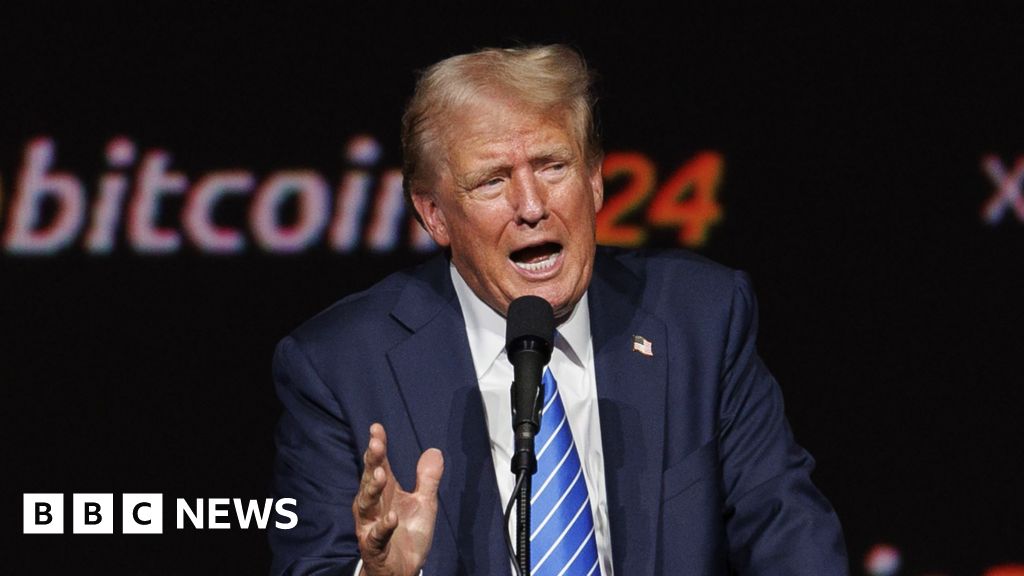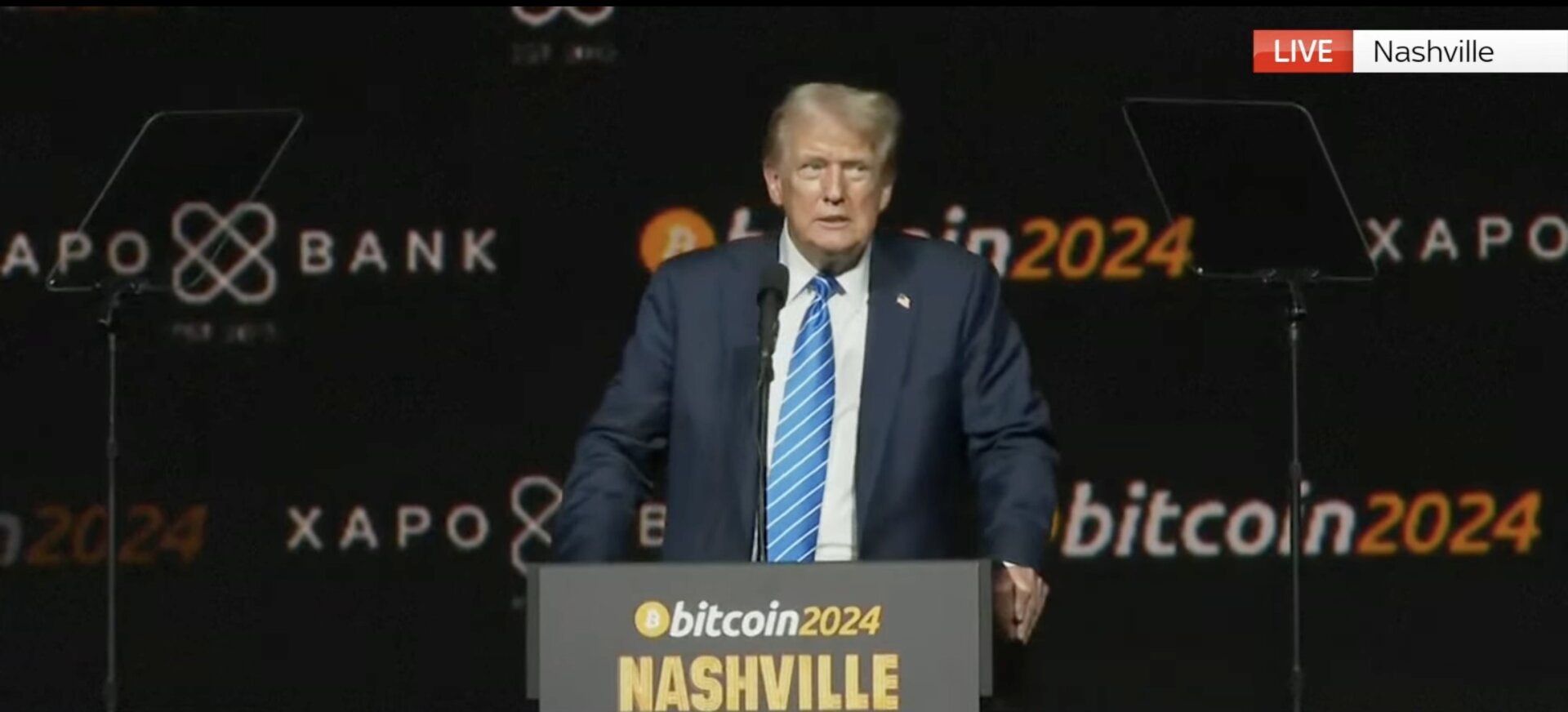Tech
Cosmos-Based Picasso Network Claims to Enable First IBC-Ethereum Connection

April 3: Picasso Network, a Cosmos-rooted interoperability network, announced an integration between the IBC (Inter-Blockchain Communication Protocol) and Ethereum, “enabling seamless asset and data transfers between Ethereum and Cosmos” for the first time, according to the team: “Picasso selected Osmosis, the DeFi Hub, to serve as the primary destination for Ethereum assets and liquidity within the Cosmos. This integration is a step forward in bringing ‘IBC everywhere,’ and serves to connect some of the deepest liquidity reserves and most promising projects in the Ethereum and Cosmos ecosystems.” The team plans a Solana-IBC connection later this month. CoinDesk 20 assets: (ETH) (ATOM)
Somnia Project, Backed by Virtual Society Foundation to Focus on Metaverse, Releases Litepaper
April 3 (PROTOCOL VILLAGE EXCLUSIVE): The Virtual Society Foundation (VSF) is introducing the Somnia Project, consisting of an L1 and omnichain protocols tailored for the metaverse, “aiming to unite disparate virtual realms into a cohesive society capable of onboarding millions of users,” according to the team. “Developed in collaboration with Improbable, Somnia’s blockchain boasts transaction speeds >100K TPS, with sub-second finality, and affordability, addressing the fragmentation plaguing the metaverse landscape and ensuring equitable value distribution among creators. Somnia’s upcoming Betanet protocol, will be integrated into MSquared’s Origin engine. This will enable events on the metaverse to facilitate over 10K people across music, sport, gaming, etc.” Details of the project were released Wednesday along with a litepaper. The VSF, unveiled last week, was initiated by Improbable, a British metaverse-focused startup that raised $150 million in 2022 from investors including a16z and SoftBank.
Stack diagram of Somnia tech and ecosystem (Somnia)
Legitimate, Platform for ‘Phygital Products,’ Raises $4.3M
April 3 (PROTOCOL VILLAGE EXCLUSIVE): Legitimate, an on-chain project to keep physical assets in sync with their digital counterparts, has closed its $4.3 million seed round, led by Lemniscap, with participation from Draper Associates, Sfermion Factor VC and others. According to the team: “Legitimate enables projects to embed a wide range of digital content into their physical goods via Legitimate’s LGT Tags, which are special encrypted NFC (Near Field Communication) chips that are integrated seamlessly into clients’ supply chains and manufacturing processes. Legitimate’s technology has been used by Puma, AMBUSH and Roc Nation to power unique consumer experiences.” From the project documentation: “When integrated into the LGT Protocol, a product is capable of becoming a phygital (physical + digital) product.”
GnosisDAO Approves Proposal to Integrate ‘Hashi’ as Security Framework in Gnosis Chain Canonical Bridges
April 3: GnosisDAO, the community behind the EVM-compatible layer 1 Gnosis Chain has approved the proposal to integrate Hashi, the additive security framework into Gnosis Chain’s canonical bridges. Accordingf to the team: “This upgrade marks a new standard for secure, decentralized cross-chain transactions focusing on future-proofing, additive security and support for over 15 General Message Passing bridges and ZK light clients. Key highlights of the approved proposal include a detailed plan to allocate $250,000 – 50% in USD and 50% in 1-year-time locked GNO – towards the integration effort.” (GNO)
Range Protocol Evolves to ‘Skate,’ to Address ‘App Fragmentation’
April 3: Range Protocol, describing itself as a “liquidity provisioning platform” with AMM vaults on DEXs like Uniswap and Pancakeswap, is launching “Skate, the universal application layer that empowers apps to run on thousands of chains, with one state,” according to the team. “Aimed to address app fragmentation in the complex multi-chain landscape, Skate introduces the concept of a Universal Application Scope with a 2024 mainnet launch. Backed by leading investors like EigenLayer, Polygon, Manta, Axelar, Biconomy, Pendle, A41 and more, essential apps can now be developed collectively and maintained in a shared pool accessible to all chains, regardless of its underlying Virtual Machine Environment.” The project’s main account on X has already been updated to the name “Skate (fka Range Protocol),” and points to a new handle, @skate_chain.
Origin Protocol Token Holders Propose to Merge OGN and OGV
April 2: Origin Protocol announced that its OGN token holders have proposed to merge OGN and OGV tokens, to boost Ethereum liquid staking, according to the team: “OGN – Origin’s first token, launched back in 2020 – was listed on Coinbase just months later. OGV, which has been appreciating greatly, reflects Origin’s growing revenue and total value locked. The goal of the merger is to capitalize on OGV’s undervaluation, as it serves as the value accrual token for Origin’s DeFi products, including the successful Origin Ether, which has over $160 million in total value locked. OGN is backed by Reddit co-founder Alexis Ohanian, YouTube co-founder Steve Chen and Y Combinator president Garry Tan.”
IoTeX, Blockchain Focused on DePIN, Raises $50M
April 2: IoTeX, an Ethereum-compatible blockchain optimized for DePIN, announced a $50 million investment from Borderless Capital, Amber Group, Foresight Ventures, FutureMoney Group, SNZ, Metrics Ventures, EV3 and Waterdrip Capital into the IoTeX Ecosystem, “to meet the growing demand for bridging real-world data with IoT devices to Web3,” according to the team: “This investment will drive DePIN growth and adoption through an investment in long-term staked $IOTX, the DePIN token that governs and fuels the IoTeX DePIN ecosystem, as well as investment in the DePIN projects building on IoTeX with the IoTeX Foundation and the DePINsurf accelerator fund.” (IOTX)
Pontem Says L2 Pontem to Integrate With EigenDA
April 2: Pontem, a product development studio building Move and EVM-compatible products “to enable a safer, more performant and developer-friendly Web3, will partner with EigenLabs to enable novel use cases for the emerging ecosystem of applications on the EigenLayer ecosystem,” according to the team: “By integrating with EigenLabs’ product EigenDA, Pontem’s L2, Lumio, will experience improved transaction speeds, cross-rollup transactions, security, decentralization, and user experience, all of which are essential for the growth and success of the Web3 ecosystem. According to a project spokesperson, it will take Pontem one to two months to integrate the testnet.”
Burnt Banksy-Affiliated XION Project Raises $25M
April 2: XION, a new “generalized abstraction” layer-1 blockchain launched last month by Burnt Banksy, announced a $25 million fundraise “to ultimately abstract away all crypto complexities, making Web3 accessible to everyone,” according to the team. Investors included Animoca Brands, Laser Digital (Nomura), Multicoin, Arrington Capital, Draper Dragon, Sfermion and GoldenTree, according to a press release. “XION has already demonstrated significant usage and adoption during its test phase with the creation of more than 1.3 million Meta Accounts, the smooth processing of over 15 million transactions and an ecosystem of over 150 projects. The new capital will allow XION to continue quickly expanding its development and global ecosystem.” (EDITOR’S NOTE: Protocol Village covered the XION launch in early March when Burnt Banksy set himself on fire as part of an art-performance-cum-publicity-stunt.)
Schematic from the XION white paper. (XION)
Celestia’s ‘Blobstream’ Expands Beyond Base to Arbitrum
April 2: Celestia, a blockchain data-availability project, said its Blobstream product – for relaying commitments of Celestia’s data root using an on-chain light client, has deployed to Arbitrum One. According to the team: “Developers can soon deploy Orbits with Celestia underneath on Arbitrum One and Base, the first modular DA integration with working Nitro fraud proofs.” According to a tweet thread: “Before Celestia, throughput limitations forced developers building expressive on-chain applications to migrate to alt-L1s or required the overhead of recruiting a committee to deploy their own chain. With Blobstream, developers can keep building in the Ethereum ecosystem – spin up customizable, high-throughput blockspace without needing to recruit a committee or use a centralized server for DA.” (TIA) (ARB)
Rootstock Developer IOVLabs Changes Name to ‘RootstockLabs’
April 2: IOVLabs, the developer behind Rootstock, an Ethereum-compatible smart-contracts platform atop Bitcoin, has changed its name to RootstockLabs. According to the team: “RootstockLabs‘ belief is that Rootstock is one of the primary ways that the Bitcoin blockchain reaches civilization scale. The change in name reflects that belief. RootstockLabs are also reaffirming their mission. To support the growth of the Rootstock ecosystem, to give developers the tools to build on Bitcoin, and to expand the frontiers of decentralized technology.” The company’s chief scientist is Sergio Demian Lerner, co-founder of the Rootstock platform.
Fhenix Plans ‘FHE-Based Coprocessors’ in Collaboration With EigenLayer
April 2: Fhenix, an Ethereum layer-2 platform based around fully homomorphic encryption (FHE), announced it’s collaborating with restaking protocol EigenLayer to “pioneer FHE coprocessors to boost Ethereum confidentiality and scalability,” according to the team. “These FHE-based coprocessors are secured by Fhenix’s optimistic FHE rollup infrastructure and EigenLayer’s restaking mechanism,” according to a press release. The goal is to “optimize tasks while ensuring data privacy, enabling unprecedented performance levels. With instant fraud-proof confirmation, they promise vast applications from confidential auctions to private AI analysis.”
DWallet Network to Bring ‘Programmable Native Bitcoin’ to Rollups in Avail Ecosystem
April 2: Avail, a modular blockchain solution designed to unify Web3 and optimize data availability (DA), has partnered with dWallet Network, “a pioneering non-collusive, decentralized multi-chain layer, to bring programmable native Bitcoin to rollups in the Avail ecosystem,” according to the team: “Leveraging the newly unveiled dWallet primitive, smart contracts using rollups built on Avail DA will be able to programmatically manage native BTC for the first time while preserving user ownership.”
Pundi X, DePIN-Focused Chain, Launches SoFi Initiative ‘PURSE+’
April 2: Pundi X, a DePIN-focused blockchain, has launched PURSE+, “a new SocialFi initiative aimed at updating the social media experience,” according to the team: “As a web browser extension for X (formerly Twitter), PURSE+ combines social networking with financial incentives, offering users a more rewarding interaction on X. This initiative aims to change how users engage with content, communities and each other on X, offering rewards for engagement through a simple web browser extension. By DeFi mechanisms being embedded into social interactions, users can finally control the value they generate, shifting from passive to active participation.”
Protocol Village is a regular feature of The Protocol, our weekly newsletter exploring the tech behind crypto, one block at a time. Sign up here to get it in your inbox every Wednesday. Project teams can submit updates here. For previous versions of Protocol Village, please go here. Also please check out our weekly The Protocol podcast.
Lorenzo Plans First ‘Bitcoin Liquid Restaking’ Protocol Using Babylon Tech
April 1: Babylon, a bitcoin staking protocol, announced a strategic integration to advance Lorenzo Protocol’s bitcoin liquid restaking product, according to the team: “Lorenzo Protocol will be constructed utilizing Babylon technology. Through the integration, Lorenzo Protocol’s BTC liquid restaking tokens (stBTC) will be representations of bitcoin staked through Babylon’s bitcoin restaking protocol. The integration ensures security alignment as Lorenzo Protocol’s liquid restaking tokens are only available on layer 2s that are secured by Babylon’s bitcoin staking and timestamping protocol.”
BSX, Non-Custodial CLOB Perps DEX on Base, Launches Open Beta
April 1: BSX, a non-custodial central limit order book (CLOB) decentralized exchange (DEX) for perpetual futures contracts, built on Coinbase’s layer-2 chain, Base, and backed by the Base Ecosystem Fund and advised by BitMEX founder Arthur Hayes, has launched its Open Beta on mainnet. According to the team: “BSX aims to compete with leading centralized exchanges (CEXs) by offering low-fee trading and CEX-like trading performance (10 ms order matching), while giving users full self-custody. BSX was born out of the turbulent collapse of FTX, which the BSX founders witnessed personally as they worked at Coinbase, Jump, Kraken and FalconX. BSX’s public testnet saw strong traction with over 5B in volume traded and over 4,000 unique traders.”
Portal Announces Collaboration to Integrate DEX With SatoshiSync’s Inscription Protocol
April 1: Portal announced a collaboration to integrate Portal’s DEX with SatoshiSync’s chain-agnostic inscription protocol for the Bitcoin finance ecosystem. According to the team: “The collaboration will advance the cross-chain trading of SatoshiSync’s native token $SSNC by simplifying and securing the process for users to trade and manage assets across multiple blockchains. Portal’s extensive network of blockchains using the Portal Swap SDK will enable the seamless trading of $SSNC, SatoshiSync-bridged Ordinal NFTs and other assets within their ecosystems to deliver a frictionless trading experience for everyone.”
Gitcoin Grants Latest Round Includes $1M for Various Initiatives
April 1: Gitcoin Grants is “back with GG20, funding open-source software (OSS),” according to the team, “through the following initiatives: Hackathon Alumni: $100K dApps & Apps: $300K Web3 Infrastructure: $300K Developer Tooling and Libraries: $300K. That’s +1 million in funds for open-source software. Applications open April 2-16. Further queries go to support@gitcoin.co.”
Horizen Team Deploys Proof Verification Chain to Testnet
March 31: The Horizen blockchain team has deployed its new “proof verification chain” to testnet, claiming the new offering is “the latest component of the modular blockchain stack.” According to a blog post: “This network allows for the exchange of $ZEN (Horizen’s native token) and verification of FFLONK Proofs produced by Polygon zkEVM instances.” Key elements include the “proof submission interface, a user-friendly interface that enables ZK rollups to submit proofs seamlessly to the Horizen network for verification,” as well as an “attestation mechanism, a protocol published on date to Ethereum and validates proofs (providing additional transparency).”
Degen Community, Syndicate Launch ‘Degen Chain’
March 28: Degen, a community token in the Farcaster ecosystem, and Syndicate, a Web3 infrastructure provider, launched Degen Chain, an ultra-low-cost L3 for the $DEGEN community built with Arbitrum Orbit, Base for settlement, and AnyTrust for data availability. According to the team: “The chain’s native gas token is $DEGEN, making it one of the first community tokens with its own L3. The Degen and Syndicate teams will support builders on Degen Chain with developer tools like Syndicate’s Transaction Cloud APIs, offering free gas for developers on Degen Chain.”
Crypto Hacks, Rug Pulls in 1Q Narrow 23% vs. Year Earlier, Immunefi Says
March 28: Immunefi, a bug bounty and security services platform for Web3 protecting over $60 billion in assets, releases its Crypto Losses in Q1 2024 report, for a loss of $336 million from the community to hacks and rug pulls in 2024 year-to-date, representing a narrowing of 23% when compared with the same period in 2023. According to Immunefi: “DeFi was the primary target for attacks, comprising 100% of cases, while CeFi experienced no incidents. Hacks continued to be the predominant cause of losses totaling $321 million, compared to frauds. Ethereum and BNB Chain were the most targeted chains.”
Tezos Validators to Vote on Protocol Upgrade Proposals for Reducing Latency, Finality Times
March 28: Tezos blockchain validators will soon vote on protocol upgrade proposals published Thursday, according to the team: “Codenamed Paris A and B, the proposals include lowering latency and cutting finality to 10 seconds blocktime, and the activation of the DAL to boost throughput and scalability of L2. They differ on a proposed overhaul of PoS fundamentals, adjusting token issuance automatically to an on-chain market for staked funds. Paris B includes these features, whereas Paris A offers validators the possibility to activate them later, via a dedicated on-chain voting mechanism.” {{TZS}}
New Edgeless Network, Powered by Arbitrum Nitro, Has No Application Layer Fees
March 28: Edgeless Foundation unveiled the Edgeless Network, describing it in a blog post as “the first ever crypto ecosystem without application layer fees, powered by Arbitrum Nitro.” According to the post: “By using Arbitrum Nitro, Edgeless has the freedom to fully customize its L2 infrastructure and with EigenLayer data availability, to keep gas fees extremely low on the network (less than $0.01 on average). Edgeless is then able to share these sequencer fees with developers so that they get a direct share of the economic value they bring to the network. In addition to this, Edgeless uses ezETH by Renzo as the baseline liquidity yield bearing asset and a stablecoin created by Stable to give back yield earned on bridged assets to developers who build on the Edgeless Ecosystem.”
Yolo Investments Puts $8M Into TON Network Ecosystem
March 28: Yolo Investments, a venture capital firm focused on gaming, fintech, blockchain and emerging technologies, has emphasized its support for the vision of The Open Network (TON) by making an $8 million investment in Toncoin and the broader TON ecosystem, according to the team: “Yolo Investments has invested in several TON-based start-ups, including Tonstarter, Fanton and PlayDeck. This partnership will also see TON Foundation and Yolo Investments support the growth and expansion of learncrypto.com, a leading crypto education platform, that is also set to introduce a plethora of fresh content tailored to TON.”
Stellar Development Foundation to Distribute $1M in Security Audit Credits to Soroban Builders
March 28: Stellar Development Foundation is launching the Soroban Security Audit Bank, which will distribute up to $1M in security audit credits in coordination with six top-tier audit firms to 20-30 high priority projects (financial protocols that manage on-chain value and that have the potential to be widely used) building on Soroban, their next generation smart contracts platform which just completed mainnet launch. This program complements the development and audit support that industry-leading web3 security firm, Certora, is providing to the ecosystem. CoinDesk 20 asset: (XLM)
Helika to Launch $50M Accelerator Program Funded by Pantera, Spartan, Sfermion
March 28: Helika, a global infrastructure provider for traditional and Web3 gaming firms like Yuga Labs and Animoca Brands, announced it will launch a $50 million accelerator program funded by Pantera, Spartan Capital, Sfermion and other venture capital firms. According to the team: “This program aims to help top gaming studios develop Web3 games designed to sustain growth in users and revenue over time. Selected projects will benefit from Helika’s expertise in tokenomics, chain selection, data analytics and more. Developer teams supported by Helika’s analysts, will be able to leverage data to identify user behavior patterns and drive desired outcomes.”
Zircuit Launches ‘Build to Earn’ Program With Rewards for Devs
March 28: Zircuit, a fully EVM-compatible ZK rollup with parallelized circuits and AI-enabled security, launched its Build to Earn program on Wednesday to incentivize builders, founders and community members who contribute to the Zircuit ecosystem. Backed by Pantera Capital, Dragonfly Capital, and Maelstrom, Zircuit currently has over $700 million staked. According to the team: “Developers and ecosystem contributors who participate in the program stand to receive rewards for approved contributions.”
Layer N, Modulus Unveil ‘AI Functions’ Tool for Use in Applications
March 28 (PROTOCOL VILLAGE EXCLUSIVE): Layer N, an “Ethereum StateNet” designed as a network of custom VMs, announced the launch of AI Functions, a tool that allows developers to integrate AI inference and AI use cases within their applications. This is in partnership with Modulus Labs, a company focused on bringing AI on-chain through ZK technology. Examples of use cases could include replacing AMMs with more sophisticated models, yield optimization strategies, gaming and AI crypto agents and AI arbitration. “Imagine a prediction market that includes AI-based arbitration of event outcomes, reducing the risk of consensus collusion,” the team wrote in a blog post.
Schematic of the new “AI Functions” feature from Layer N and Modulus (Layer N)
Flock.io, Web3 Training Startup, Raises $6M, Led by Lightspeed Faction, Tagus
March 28: Flock.io, a Web3 training and AI fine-tuning startup, has announced the close of a $6 million seed funding round led by Lightspeed Faction and Tagus Capital with participation from DCG, OKX Ventures, and Volt Capital. This investment will be used towards democratizing AI training and the development of its machine-learning and federated learning platform.
VeChain Announces ‘Marketplace-as-a-Service,’ Starting With Gresini Racing
March 28: VeChain announced its no-code digital asset tokenization platform, called Marketplace-as-a-Service (MaaS). According to the team: “MaaS was built to fulfill an important role within the digital-asset space, presenting enterprise and individual builders a low/no-code NFT platform for creating, selling and transferring digital assets with ease. MotoGP championship team, Gresini Racing, is the first enterprise client to deploy a marketplace on the platform supported by ExPlus. Leveraging a bespoke collection of IP-related content, Gresini Racing plans to offer digital collectibles to its large fanbase.”
Neopin, Permissioned DeFi Protocol, Introduces ‘Build Aggregated’ Feature With Spark, Athena
March 28 (PROTOCOL VILLAGE EXCLUSIVE): Neopin, a protocol for “non-custodial, permissioned DeFi,” introduced a new feature called “build aggregated,” merging Spark protocol, Athena and the curve into a unified smart contract, bolstered by AI-driven optimization, according to the team: “This integration empowers users with streamlined operations and customizable exposure options, marking a significant leap in operational efficiency within the cryptocurrency landscape.”
BloXroute Announces Mainnet Launch of ‘Validator Gateway’
March 28 (PROTOCOL VILLAGE EXCLUSIVE): BloXroute, a blockchain distribution network, announced the public launch of its Validator Gateway, designed to optimize Ethereum validators’ performance and significantly boost their rewards, according to the team: “Over 30K validators locked $4B on the testnet, leveraging advanced technology, enhancing block proposal processes, accelerating block propagation and providing validators with a strategic advantage in the competitive blockchain landscape. With seamless integration with existing validator setups, the Validator Gateway makes it easy for network decentralization to continually grow.”
The Graph Network, Leading Blockchain Indexer, Adds Support for Bitcoin
March 28: The team behind The Graph Network, including the developer Edge & Node, announced that the network now supports Bitcoin. According to the team: “With the introduction of a new Bitcoin Firehose implementation and a BRC-20 subgraph GraphQL API, The Graph enables developers to access Bitcoin data directly through subgraphs and Substreams, facilitating easy access to Bitcoin data. This development not only enhances the utility of Bitcoin within The Graph’s decentralized network but also opens up new avenues for developers to build innovative applications — at a moment in time when there’s a renewed surge of interest in Bitcoin and the emergence of Bitcoin Layer 2s. Devs building on Bitcoin or Bitcoin Layer 2s can email info@thegraph.foundation for indexing support or assistance and help getting started building with The Graph.” (GRT) (BTC)
Tech
The Information Hires Peterson to Cover Tech, Finance, Cryptocurrency

My life is nice
Tech news site The Information has hired Business Insider actress to cover technology, finance and cryptocurrencies.
She was part of Business Insider’s investigative team. She was also previously a corporate technology reporter and a technology deals reporter.
Peterson has been with Business Insider since June 2017 and is based in the San Francisco office.
She previously worked for Folio as an associate editor. She holds a bachelor’s degree from the University of California-Davis and a master’s degree from New York University.
Chris Roush
Chris Roush is the former dean of the School of Communications at Quinnipiac University in Hamden, Connecticut. Previously, he was the Walter E. Hussman Sr. Distinguished Professor of Business Journalism at UNC-Chapel Hill. He is a former business reporter for Bloomberg News, Businessweek, The Atlanta Journal-Constitution, The Tampa Tribune, and the Sarasota Herald-Tribune. He is the author of the leading business journalism textbook, Show Me the Money: Writing Business and Economics Stories for Mass Communication, and of Thinking Things Over, a biography of former Wall Street Journal editor Vermont Royster.
Tech
Trump Courts Crypto Industry Votes, Campaign Donations

About the article
- Author, Brandon Livesay
- Role, BBC News
-
July 27, 2024
Donald Trump said at one of the biggest cryptocurrency events of the year that if he is re-elected president, he will fire the chairman of the U.S. Securities and Exchange Commission (SEC) on his first day.
On Saturday, Trump was the keynote speaker at Bitcoin 2024, a gathering of industry heavyweights in Nashville, Tennessee.
The Republican presidential candidate used the event to woo voters and encourage the tech community to donate to his campaign.
Cryptocurrencies have emerged as a political battleground for Republicans, with Trump saying that the Democratic Party and Vice President Kamala Harris were “against cryptocurrencies.”
The crowd was at its most animated when Trump declared, “On day one, I will fire Gary Gensler,” the SEC chairman appointed by now-President Joe Biden. The crowd applauded loudly and began chanting “Trump” at this statement.
SEC files charges against ‘Cryptocurrency King’ Sam Bankman-Frittosentenced to 25 years for stealing billions of dollars from customers of his cryptocurrency exchange FTX.
Speaking for about 45 minutes, Trump outlined some of his ideas for the industry if he wins the November election. He said he would make the United States the crypto capital of the world. His support for the sector is a 180-degree reversal from his comments in 2021, when he told Fox Business he saw Bitcoin as a “scam” that influence the value of the US dollar.
Trump told the crowd at the event that he would retain 100% of the Bitcoin currently owned or acquired by the U.S. government, adding that it would be a “national stockpile of Bitcoin.”
The former president also said he would “immediately appoint a presidential advisory council on Bitcoin and cryptocurrencies.”
He talked about the power needed to mine cryptocurrencies. “It takes a lot of electricity,” he said, adding that he would build power plants “to do that” and that it would “use fossil fuels.”
In recent months, some tech leaders have seen growing support for Trump’s presidential campaign. Tesla founder Elon Musk, who is the world’s richest person, has backed Trump. And cryptocurrency moguls the Winklevoss twins, who attended his speech on Saturday, have also come out in support.
Trump noted that his campaign accepts cryptocurrency donations, saying that in the two months since allowing cryptocurrency transactions, he has received $25 million (£20 million) in donations. However, he did not say how much of the payments came from cryptocurrency.
Trump used his speech to frame cryptocurrency regulation as a partisan issue, saying the Biden administration was “anti-crypto.”
Several Republican lawmakers also attended Trump’s speech, including Senators Tim Scott and Tommy Tuberville. Former Republican presidential candidate and Trump ally Vivek Ramaswamy was also in attendance.
The event was also attended by independent presidential candidate Robert F Kennedy Jr. and Democratic Party congressmen Wiley Nickel and Ro Khanna.
Earlier, during Bitcoin 2024, Democratic Congressman Nickel said that Kamala Harris was taking a “forward-thinking approach to digital assets and blockchain technology.”
Tech
WazirX Crypto Exchange Hack and Its Bounty Program: What Does It Mean for Crypto Investors in India?

On July 18, India Cryptocurrency exchange WazirX has been hit by a cyber attack which resulted in the loss of over $230 million worth of digital assets from one of its wallets. The exchange responded by suspending regular trading and reporting the incident to Indian authorities and other cryptocurrency exchanges. The company also launched two reward programs for ethical hackers who can help the exchange trace, freeze, and recover stolen funds.
WazirX said there was a cyberattack on a multi-signature wallet operated through a digital asset custodian service known as Liminal. Multi-signature wallets have a built-in security feature that requires multiple parties to sign transactions.
“The impact of the cyberattack is over $230 million on our clients’ digital assets,” WazirX said in a blog post, adding that INR funds were not affected. The company has firmly denied that WazirX itself was hacked and has brushed aside rumors that it was tricked by a phishing attack.
The exchange also noted that it was “certain” that its hardware keys had not been compromised, adding that an external forensic team would be tasked with investigating the matter further.
But Liminal, after completing its investigation, said: “It is clear that the genesis of this hack stems from three devices compromised by WazirX.”
Meanwhile, WazirX founder and CEO Nischal Shetty said that the attack would have been possible only if there were four points of failure in the digital signature process.
Who is behind the cyber attack?
WazirX has not yet disclosed the suspected parties or perpetrators responsible for the hack. However, news reports have emerged that North Korean hackers were responsible for the incident.
On-chain analytics and other information indicate “that this attack was perpetrated by hackers affiliated with North Korea,” blockchain analytics platform Elliptic said.
In response to The Hindu’s questions to WazirX about the North Korean hackers, cryptocurrency exchange WazirX directed us to its blog and said it was working with law enforcement to investigate whether a known malicious group was behind the attack.
“This incident affected the Ethereum multisig wallet, which consists of ETH and ERC20 tokens. Other blockchain funds are not affected,” WazirX said in its official blog, specifying that approximately 45% (according to preliminary work) of cryptocurrencies were affected by the attack.
The company largely placed the blame on the process of securing Ethereum multisig wallets and said that the vulnerability was not unique to WazirX.
How important is WazirX in the cryptocurrency industry?
WazirX calls itself India’s largest cryptocurrency exchange by volume. As of June 10, it reported total holdings of ₹4,203.88 Crores, or 503.64 million USDT. Tether [USDT] It is a stablecoin, that is, a cryptocurrency pegged to the value of the US dollar, but it is not an official currency of the United States.
When The Hindu tried to access WazirX Public and Real-Time Reserve Proof After the hack, we were greeted with a notice that the page was under maintenance.
WazirX has received both positive and negative reviews in India. The Enforcement Directorate froze the exchange’s assets in 2022, criticizing its operating procedures and lax Know-Your-Customer (KYC) and Anti-Money Laundering (AML) regulations.
“By encouraging obscurity and adopting lax AML norms, it has actively assisted around 16 accused fintech companies in laundering proceeds of crime using the cryptocurrency route. Accordingly, equivalent movable assets amounting to Rs 64.67 Crore in possession of WazirX have been frozen under the PMLA, 2002,” the ED said in a statement.
What will happen to WazirX assets?
It is unlikely that the stolen WazirX assets will be fully recovered anytime soon. This is due to the very nature of cryptocurrency, where assets can be easily mixed, transferred, converted, and sent to anonymous wallets. The chances of asset recovery are even slimmer if it is confirmed that North Korean hackers are behind the incident.
CEO Shetty said on X on July 22 that “small” portions of the stolen funds had been frozen, but declined to provide further details. He added that the majority of the funds had not been moved from the attacker’s wallet.
In recent years, North Korean hackers have stolen billions of dollars in cryptocurrency, aiming to circumvent various financial and economic sanctions.
WazirX is currently working to resume normal operations and has planned to launch an online survey to decide how to resume trading on the platform.
While the Indian exchange has defended its security practices and highlighted the challenges facing the cryptocurrency industry as a whole, savvy crypto traders will be looking for action plans and accountability, rather than emotional reassurance.
What does your rewards program consist of?
WazirX has announced two bounty programs: one to gain more information about stolen funds, and the other to recover them. Both programs are open to everyone except WazirX employees and their immediate family members.
Under the first program, WaxirX will reward up to $10,000 to anyone who can provide the exchange with information that can help freeze the funds. If the bounty hunter is unable to freeze the funds on their own, they should work with WazirX by providing enough evidence to facilitate the process.
But “if the participant fails to freeze and/or does not cooperate with WazirX to facilitate the freezing of funds, then the participant will not be entitled to any rewards,” the exchange said.
The second program, called White Hat Recovery, is aimed at recovering funds. Participants are offered 10% of the amount recovered as a white hat incentive.
“This reward will be paid only after and subject to the successful receipt of the stolen amount by WazirX. The above rewards will be payable in USDT or in the form of recovered funds at the sole discretion of WazirX,” the exchange noted.
The bounty programs are expected to last for the next three months.
This is a Premium article available exclusively to our subscribers. Read over 250 premium articles each month You have exhausted your limit of free articles. Support quality journalism. You have exhausted your limit of free articles. Support quality journalism. X You have read {{data.cm.views}} of {{data.cm.maxViews}} free articles. X This is your last free article.
Tech
Trump Vows to Make US ‘Crypto Capital of the Planet and Bitcoin Superpower’

Speaking to a crowd of supporters at the Bitcoin 2024 Conference in Nashville, Tennessee, former President and Republican candidate Donald Trump said that if elected, he would make the United States the “crypto capital of the planet and a Bitcoin superpower.”
Trump added that he would “appoint a Presidential Advisory Council on Bitcoin and Cryptocurrencies,” which would have 100 days to “design transparent regulatory guidance that will benefit the entire industry.”
Trump has publicly opposed cryptocurrencies until recently. His latest statements serve as a rallying cry for a tech industry that has long called for more flexible regulatory oversight.
Shortly after taking the stage, Trump spent several minutes naming some of the conference attendees, at one point describing Winklevoss Twins Cameron and Tyler as “male role models with big, beautiful brains.” The former president has continued to speak out against electric car mandates and called for more fossil-fuel burning power plants.
Trump also said he would order the United States to withhold all Bitcoin it currently owns “in the future.” The U.S. government reportedly holds billions of dollars in Bitcoin.
About three years ago, Trump called Bitcoin “a fraud“that is “competing against the dollar.” In February 2024, the former president said that establishing a central bank digital currency would represent a “dangerous threat to freedom.” Yet, in May, Trump declared that he was “good with [crypto]“, adding, “if you’re pro-cryptocurrency you’d better vote for Trump.” That same month, he said he would commute with the Silk Road founder Ross Ulbricht’s Sentencingand his campaign said it would accept cryptocurrency donations.
Recent comments from Trump and independent presidential candidate Robert F. Kennedy Jr. have helped make cryptocurrency regulation a major political issue in the 2024 U.S. presidential election. This comes as the SEC intensifies its scrutiny of the cryptocurrency industry. SEC Chairman Gary Gensler, appointed by President Joe Biden, called the activity “full of fraud, scams, bankruptcies and money laundering.” Trump drew applause at the conference after promising to “fire” Gensler. (U.S. presidents have the power to appoint the heads of many federal commissions, including the SEC.)
With Biden out of the raceVice President Kamala Harris’s campaign advisers have He is said to have contacted to cryptocurrency leaders in an effort to “reset” relations with the industry. Harris’s campaign has not yet said whether her stance on the industry differs from Biden’s.
-

 Altcoins12 months ago
Altcoins12 months agoTop Solana-Based Altcoins Stack Up As Market Turns Bullish!
-

 Altcoins12 months ago
Altcoins12 months agoAltcoins Are Severely Undervalued, Awaiting Ethereum Move | Flash News Detail
-

 News12 months ago
News12 months agoAI meme Raboo and crypto newbie ZRO
-

 Altcoins12 months ago
Altcoins12 months agoAltcoins Correct Amid ETH Decline, Grayscale Outflows | Flash News Detail
-

 DeFi12 months ago
DeFi12 months agoIf You Missed BONK and PEPE This Year, This Viral New Crypto Might Be Your Salvation
-

 Tech12 months ago
Tech12 months agoLogan Paul Offers Partial Refund for Failed CryptoZoo Game
-

 News12 months ago
News12 months agoDonald Trump vows to make the US a ‘Bitcoin superpower’ and create a national stockpile of tokens
-

 DeFi12 months ago
DeFi12 months agoIf You Missed BONK and PEPE This Year, This Viral New Crypto Might Be Your Salvation
-

 Tech1 year ago
Tech1 year agoThe Latest Tech News in Crypto and Blockchain
-

 Altcoins12 months ago
Altcoins12 months agoAltcoins set to make new crypto millionaires during summer rally
-

 DeFi1 year ago
DeFi1 year ago🪂EigenLayer Airdrop Claims Go Live
-

 Videos1 year ago
Videos1 year agoLIVE FOMC 🚨 Could be CATASTROPHIC for Altcoins!












